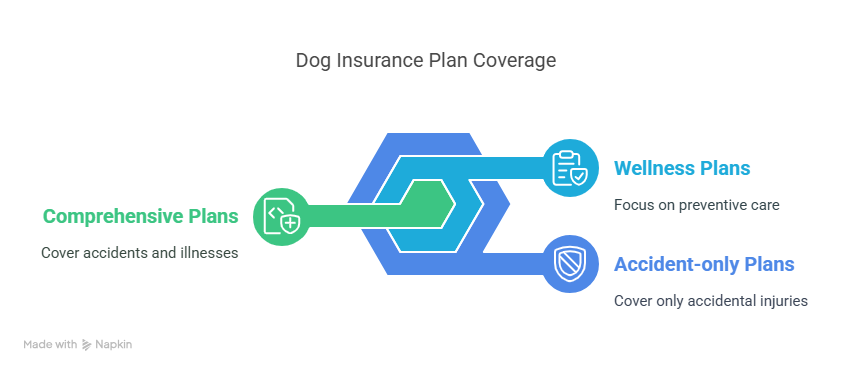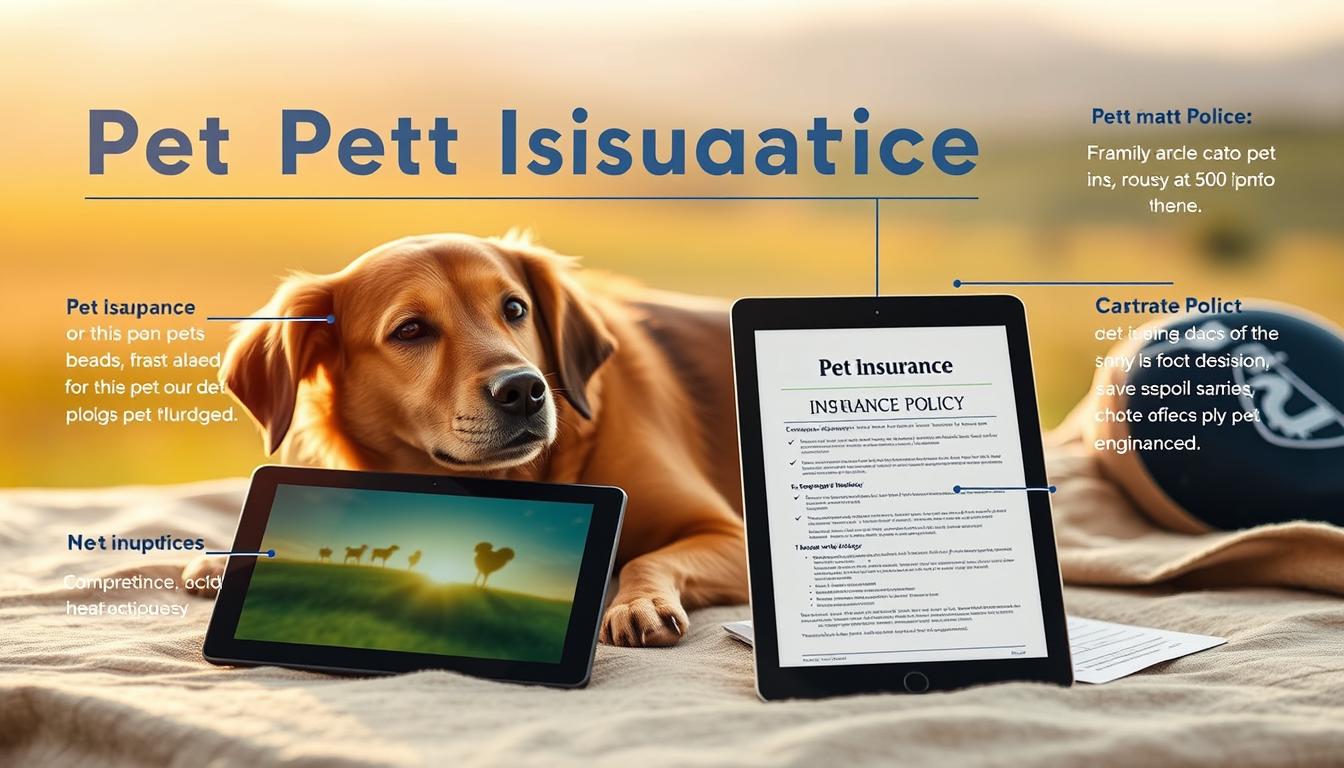Being a pet owner means that your animal partner is more than simply a buddy; they are a cherished family member. Maintaining their health and welfare is of utmost importance, and the advantages of pet insurance may be quite helpful in providing financial stability against unforeseen medical bills.
Having the appropriate dog insurance coverage might be crucial given the growing expenses of veterinarian care. It assists you in choosing not only what is reasonably priced but also what is ideal for your pet.
It’s critical to comprehend the range of advantages offered by pet insurance. Usually, it covers diseases, accidents, and perhaps even regular medical treatment. You can more easily traverse the intricate realm of pet healthcare by being aware of what is covered.
Knowing the Fundamentals of Dog Insurance
Any pet owner may provide animal health protection by purchasing insurance to safeguard their dog’s health. Dog insurance is intended to provide financial stability and peace of mind by helping to defray the expenses of your dog’s medical care.
The Operation of Dog Insurance
Dog insurance functions similarly to health insurance for people. The insurance company pays a percentage of your dog’s medical bills in exchange for your monthly fee. Depending on the insurance, the details may vary, but in general, after getting veterinary treatment, you file a claim with the insurer, and they pay you back in accordance with the provisions of the policy.
Dog Insurance Plan Types
Dog insurance policies come in a variety of forms, such as:
- Plans that just cover accidents
- Plans for wellness
- All-inclusive plans that address diseases and accidents

Every kind of strategy has advantages and disadvantages. Examining and contrasting several programs is crucial to determining which one best meets your dog’s requirements.
What Is Covered by Dog Insurance?
Dog insurance’s main objective is to provide monetary security against unforeseen veterinary costs. Although dog insurance plans differ, most of them cover a variety of treatments and ailments to help guarantee your dog gets the care they need.
Coverage for accidents
An essential part of dog insurance is accident coverage, which helps pay for expenses related to incidents that cause injuries like broken bones, things being eaten, or being struck by a vehicle. Vet expenditures for treatments, hospital stays, and emergency procedures may be partially reimbursed by this coverage.
Health Insurance
Another essential component of dog insurance is coverage for diseases that affect pets. The expenses of detecting and treating diseases including cancer, infections, and chronic disorders are partially covered by this policy. It may cover costs for prescription drugs, hospital stays, and other associated therapies.

Options for Wellness and Preventative Care
Routine checkups, vaccines, and prophylactic drugs for parasites like fleas, ticks, and heartworms are among the wellness and preventative care choices that some dog insurance plans include. These services aid in preserving your dog’s health and guarding against certain ailments.
Specialty and Emergency Care
Emergency and specialist care, including as trips to emergency clinics, specialized therapies, and non-routine procedures, may also be covered by dog insurance. This guarantees that in an emergency, your dog may get the treatment they need right away.
| Coverage Type | Description | Examples of Covered Expenses |
|---|---|---|
| Accident Coverage | Covers injuries from accidents | Emergency surgeries, hospital stays, treatments for injuries |
| Illness Coverage | Covers diagnosing and treating illnesses | Medications, hospital stays, treatments for chronic conditions |
| Wellness and Preventative Care | Covers routine check-ups and preventative care | Vaccinations, preventative medications, routine check-ups |
| Emergency and Specialty Care | Covers emergency and specialized treatments | Emergency clinic visits, specialized treatments, non-routine surgeries |
Selecting the Appropriate Dog Insurance Plan
There are many different dog insurance plans available, so choosing the best one requires carefully weighing a number of variables. Dog owners must evaluate the degree of coverage needed, their financial status, and the health requirements of their pet.
Premiums and cost considerations
The age, breed, location, and health status of the dog may all have a big impact on the cost of dog insurance premiums. Premiums typically run between $20 to $50 a month, however they may be more for older dogs or breeds that are more likely to have certain health problems.
Options for Deductibles and Reimbursement
Dog owners’ out-of-pocket costs are mostly determined by deductibles and reimbursement alternatives.Reimbursement amounts vary from 50% to 100% of covered costs, and deductibles may range from $0 to $1,000. Selecting an insurance that fits one’s financial situation requires an understanding of these factors.
Comparing Insurance Companies
Finding the best dog insurance requires comparing many insurance companies. Coverage for pet emergencies, dog medical costs, and dog insurance coverage are important considerations when comparing policies. Key distinctions between well-known dog insurance companies are highlighted in the following table:
| Provider | Coverage for Pet Emergencies | Dog Medical Expenses | Canine Insurance Coverage |
|---|---|---|---|
| Provider A | Up to $10,000 | 80% reimbursement | Includes wellness care |
| Provider B | Unlimited | 90% reimbursement | Excludes pre-existing conditions |
| Provider C | Up to $5,000 | 70% reimbursement | Covers chronic conditions |
Dog owners may choose a dog insurance coverage that suits their requirements and budget by carefully weighing these variables and comparing insurance companies.
In conclusion, is it worthwhile to have dog insurance?
Dog insurance protects pet owners against unforeseen medical costs, enabling them to provide their pets the care they need without going over budget. Making educated pet insurance selections requires knowing what dog insurance covers.
Dog insurance is a wise investment for pet owners because to its many advantages, which include wellness programs, disease coverage, and accident coverage. Pet owners may benefit from financial security and peace of mind knowing that their pets are protected in the event of emergencies or diseases by selecting the appropriate coverage.
In conclusion, pet owners who want to guarantee their pets get the finest treatment possible should think about getting dog insurance. Owners may decide whether dog insurance is good for them by carefully considering the advantages and disadvantages.




